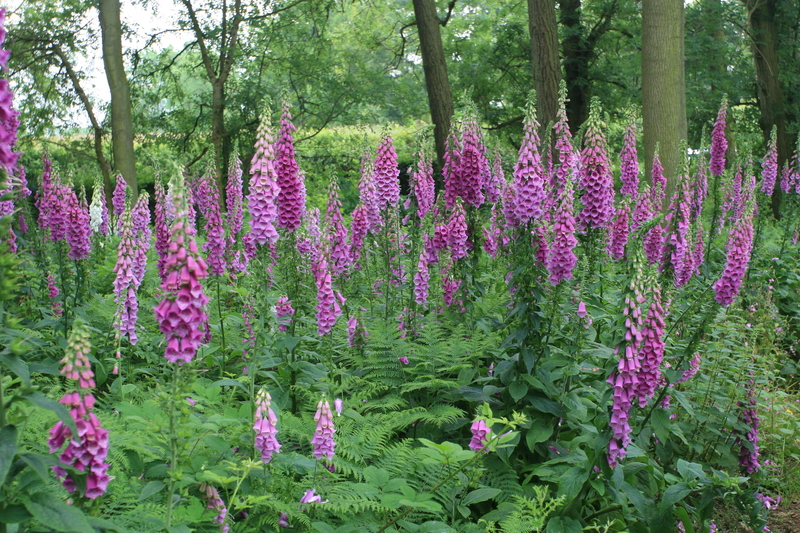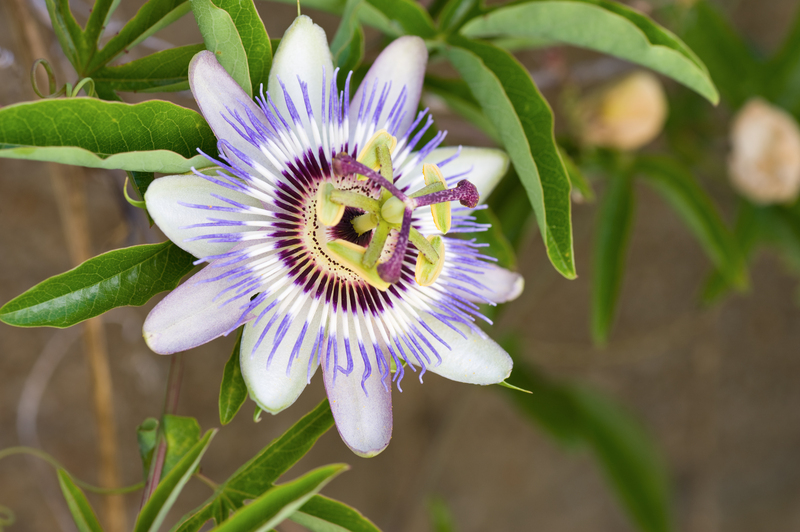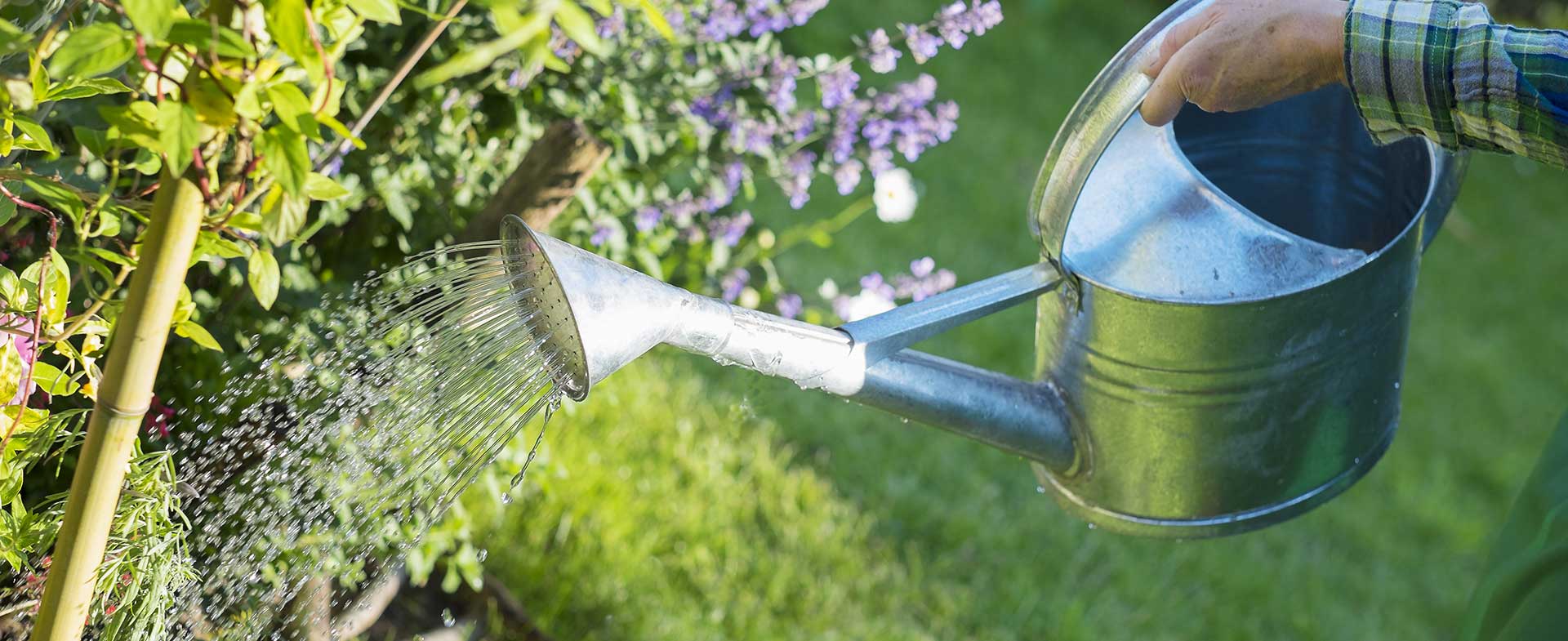3 Simple and Effective Tips for Controlling Weeds
Posted on 23/09/2025
3 Simple and Effective Tips for Controlling Weeds
Anyone who has spent time nurturing a lawn or garden has faced the persistent problem of weeds. These unwelcome plants not only mar the appearance of your landscape but also compete with your cherished flowers, vegetables, and grasses for vital resources such as *sunlight*, *water*, and *nutrients*. Luckily, you don't need to resort to endless hours of tedious pulling or harsh chemicals. In this comprehensive guide, you'll discover simple and effective weed control tips that will transform your fight against these garden invaders.

Understanding Weeds: Why Effective Weed Control Matters
Weeds are more than just an eyesore. Uncontrolled weed growth can:
- Steal nutrients from your desirable plants
- Encourage pests and diseases
- Reduce crop yields in vegetable gardens
- Spread rapidly, choking out lawns and flowerbeds
By mastering the basics of weed prevention and removal, you'll save time, money, and protect the health of your landscape all season long.
1. Prevent Weeds Before They Appear with Mulching Techniques
One of the most effective ways to prevent weeds from taking over your garden or yard is by mulching. The process is both quick and affordable, making it perfect for busy homeowners and budding gardeners alike.
Why Mulch Works Wonders for Weed Suppression
Mulch acts as a powerful barrier on the soil surface, blocking sunlight and making it nearly impossible for weed seeds to germinate. Not only does this weed control method reduce your workload, but it also helps soil retain moisture, moderates temperature, and adds valuable organic matter as it breaks down.
Best Mulching Materials for Stopping Weeds
- Organic mulches: Shredded bark, wood chips, straw, grass clippings, and compost
- Inorganic mulches: Landscape fabric, black plastic, gravel, or rubber mulch
To get the best results, spread a layer of mulch 2-4 inches deep around your plants and garden beds. Pay extra attention to bare ground and spaces between plantings, as these are prime breeding areas for unwanted plants.
Expert Mulching Tips:
- Refresh organic mulches annually to maintain coverage and effectiveness
- Keep mulch away from plant stems to prevent rot and pest problems
- Use landscape fabric beneath mulch in high-weed-pressure areas for extra protection
Mulching is not only simple, but it provides year-round weed control. Start using it today, and you'll see a dramatic difference in your weed load and soil health next season.
2. Remove Weeds Effectively: Manual and Mechanical Methods That Last
Despite your best prevention efforts, some weeds will always find a way. When they pop up, knowing how to remove weeds efficiently is crucial for controlling their spread.
The Right Way to Pull Weeds
Hand-pulling is still one of the most effective methods, especially for controlling weeds in flowerbeds, vegetable gardens, and small lawns. But it's important to remove the entire root system--especially for perennial weeds like dandelions or bindweed, which can regrow from even a small piece left behind.
Step-by-Step Guide for Successful Weed Pulling:
- Water your soil first (moist soil makes roots easier to remove)
- Grab the weed as close to the ground as possible
- Gently pull with slow, steady pressure to remove the entire root
- For deep-rooted or tough weeds, use tools like a dandelion digger, hoe, or hand trowel
Mechanical Weed Control Tools
- Hoes: Slice off annual weeds just below the soil surface in vegetable beds and pathways
- Cultivators: Loosen and aerate soil while uprooting shallow-rooted weeds
- Weed pullers/weeding forks: Remove perennial weeds from lawns and tight spaces
Tip: Always dispose of weed debris right away to prevent seeds from spreading and re-germinating.
Timing is Everything!
- Pull weeds before they set seed to drastically reduce next year's population
- Try to remove weeds after rain or watering, when soil is soft and roots are easy to extract
By practicing consistent manual weed removal, you'll keep your garden much healthier, reduce chemical use, and enjoy a more attractive yard.
3. Smart Cultural Practices to Outcompete Weeds
Sometimes the best weed control strategy is using nature itself. Healthy, dense plantings naturally crowd out weeds by blocking sunlight and leaving little room for invaders. You can make your garden or lawn more weed-resistant year after year with these simple and effective tactics:
Maintain a Thick, Lush Lawn
A healthy lawn is your first line of defense against unwanted plants. Follow these tips for weed-free turf:
- Mow high: Keep grass at the recommended height for your species; taller blades shade weed seedlings
- Feed regularly: Use balanced fertilizer to promote dense growth
- Overseed: Fill bare spots each fall or spring to prevent weed colonization
- Water deeply but infrequently to encourage deep-rooted, resilient grass
Plant Densely in Flower and Vegetable Gardens
- Use groundcovers or closely spaced annuals to shade soil surfaces
- Interplant vegetables (like lettuce among tomatoes) to maximize coverage
- Utilize companion planting--certain plants can discourage specific weeds
Regular Maintenance Goes a Long Way
- Inspect your garden often--catch new weeds while they're small and easy to pull
- Stay ahead with seasonal cleanups, removing dead debris and old plant material
- Rotate crops in vegetable gardens to reduce soil-borne weed problems
By promoting vigorous, healthy plant growth, you create an environment where weeds simply can't compete. Smart cultural practices are a long-term, organic solution for weed control.
Bonus Tips: Simple and Natural Weed Control Solutions
- Boiling water: Great for spot-treating weeds in walkways or patios (avoid wanted plants!)
- Vinegar spray: Household vinegar can kill young weeds--just spray on sunny days for best results
- Cardboard/newspaper: Smother persistent weeds by covering them with layers before adding mulch
Note: Use natural options carefully to avoid harming nearby desirable vegetation.
Frequently Asked Questions About Weed Control
How can I control weeds without using chemicals?
Use mulching, hand pulling, and dense planting for chemical-free weed management. Consistent maintenance is key, and natural remedies like boiling water or vinegar can handle isolated outbreaks.
What is the best time to weed my garden?
Early spring and after watering or rain are ideal times. Young seedlings are easier to remove, and moist soil helps pull all roots.
How can I prevent weeds from coming back?
Regular maintenance, seasonal mulching, and keeping your lawn or garden beds thickly planted will reduce future weed pressure. Always pull or cut weeds before they go to seed!

Conclusion: Control Weeds Simply, Naturally, and Effectively
Controlling weeds isn't about expensive products or backbreaking labor. With a combination of prevention, effective manual removal, and smart gardening practices, you can dramatically reduce weeds and enjoy a healthier, more attractive landscape. Tackle weeds early, mulch generously, nurture a vigorous lawn and garden, and stay consistent with maintenance for the best results.
Remember, the best weed control methods are simple, effective, and environmentally friendly. Start with these tips, and you'll spend less time fighting weeds and more time enjoying your beautiful, productive outdoor spaces all season long.
Related Resources
- More Weed Control Advice from Gardening Know How
- NDSU: Weed Control in Lawns
- RHS: Weed Management Strategies
Latest Posts
Maximize greenery with vertical gardening
Unleash Your Inner Gardener with a Versatile Herb Garden
3 Simple and Effective Tips for Controlling Weeds
Cultivating Beauty: A Guide to Perfecting Garden Seating Arrangements

